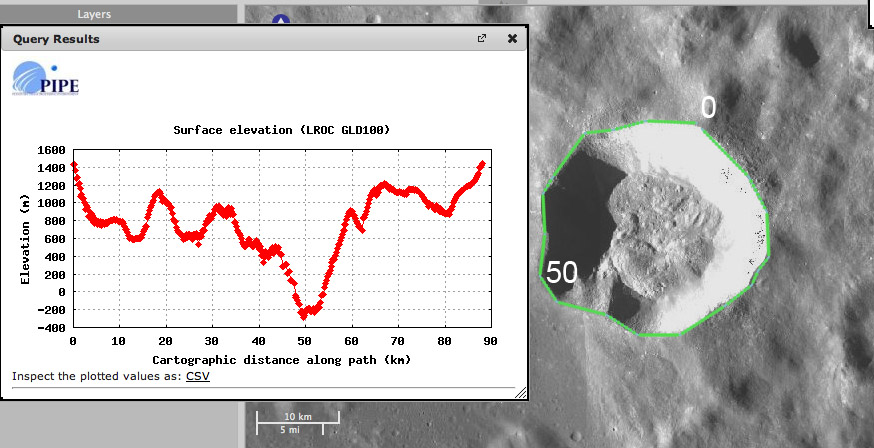Difference between revisions of "May 19, 2012"
| (5 intermediate revisions by the same user not shown) | |||
| Line 1: | Line 1: | ||
__NOTOC__ | __NOTOC__ | ||
=Circumferential Ups And Downs= | =Circumferential Ups And Downs= | ||
| + | <!-- Start of content --> | ||
<!-- ws:start:WikiTextHeadingRule:0:<h1> --> | <!-- ws:start:WikiTextHeadingRule:0:<h1> --> | ||
<!-- ws:start:WikiTextLocalImageRule:6:<img src="/file/view/LPOD-May19-12.jpg/337215366/LPOD-May19-12.jpg" alt="" title="" /> -->[[File:LPOD-May19-12.jpg|LPOD-May19-12.jpg]]<!-- ws:end:WikiTextLocalImageRule:6 --><br /> | <!-- ws:start:WikiTextLocalImageRule:6:<img src="/file/view/LPOD-May19-12.jpg/337215366/LPOD-May19-12.jpg" alt="" title="" /> -->[[File:LPOD-May19-12.jpg|LPOD-May19-12.jpg]]<!-- ws:end:WikiTextLocalImageRule:6 --><br /> | ||
<em>image from [http://target.lroc.asu.edu/da/qmap.html?mv=eqc&mcx=1422081.96557&mcy=487895.97268&mz=8 LRO QuickMap]</em><br /> | <em>image from [http://target.lroc.asu.edu/da/qmap.html?mv=eqc&mcx=1422081.96557&mcy=487895.97268&mz=8 LRO QuickMap]</em><br /> | ||
<br /> | <br /> | ||
| − | In discussing the rim unevenness of Kies A [http://lpod. | + | In discussing the rim unevenness of Kies A [http://www2.lpod.org/wiki/May_18,_2012 yesterday] I thought about comparing it a classic oblique impact crater. Using the LRO [http://target.lroc.asu.edu/da/qmap.html?mv=eqc&mcx=1422081.96557&mcy=487895.97268&mz=8 QuickMap] I tried measuring the circumference of the rim crest of Proclus, but kept failing because I included too many vertices, places where I turned the line in a slightly different direction to better follow the rim. I never did find out the max number of vertices allowed but finally arrived at this rim topo map. Unfortunately, the LRO Path topo tool doesn't mark on the green traverse line the distances from the starting point, making it somewhat hard to correlate the red topo line with the exact location on the traverse. The starting and end point of my circumnavigation of Proclus is at the point marked 0, and the large dip in the rim occurs at 50 km along the traverse. It has long been known that the notch out of the rim of Proclus (at 50) is low, and these data show that it is about 1200 m lower than nearby parts of the rim. This was apparently the contact point for the obliquely impacting projectile, which seems to have continued moving eastward before finally forming the crater. The other variations of rim elevation may have resulted, as Mark Settle and Jim Head [http://www.sciencedirect.com/science/article/pii/0019103577900756 suggested] 35 yer ago, from azimuthial variations in ejecta thickness. By the way, the Moon-Wiki LRO [http://www.lpod.org/coppermine/displayimage.php?pid=4899&fullsize=1 image] of Proclus is much better than this image from the QuickMap.<br /> |
<br /> | <br /> | ||
<em>[mailto:tychocrater@yahoo.com Chuck Wood]</em><br /> | <em>[mailto:tychocrater@yahoo.com Chuck Wood]</em><br /> | ||
<br /> | <br /> | ||
<strong>Related Links</strong><br /> | <strong>Related Links</strong><br /> | ||
| − | Rükl plate [ | + | Rükl plate [https://the-moon.us/wiki/R%C3%BCkl_26 26]<br /> |
<br /> | <br /> | ||
| + | <p><b>Yesterday's LPOD:</b> [[May 18, 2012|Horns And Wings]] </p> | ||
| + | <p><b>Tomorrow's LPOD:</b> [[May 20, 2012|Glancing At Ryder]] </p> | ||
<hr /> | <hr /> | ||
| + | {{wiki/ArticleFooter}} | ||
Latest revision as of 08:33, 28 October 2018
Circumferential Ups And Downs

image from LRO QuickMap
In discussing the rim unevenness of Kies A yesterday I thought about comparing it a classic oblique impact crater. Using the LRO QuickMap I tried measuring the circumference of the rim crest of Proclus, but kept failing because I included too many vertices, places where I turned the line in a slightly different direction to better follow the rim. I never did find out the max number of vertices allowed but finally arrived at this rim topo map. Unfortunately, the LRO Path topo tool doesn't mark on the green traverse line the distances from the starting point, making it somewhat hard to correlate the red topo line with the exact location on the traverse. The starting and end point of my circumnavigation of Proclus is at the point marked 0, and the large dip in the rim occurs at 50 km along the traverse. It has long been known that the notch out of the rim of Proclus (at 50) is low, and these data show that it is about 1200 m lower than nearby parts of the rim. This was apparently the contact point for the obliquely impacting projectile, which seems to have continued moving eastward before finally forming the crater. The other variations of rim elevation may have resulted, as Mark Settle and Jim Head suggested 35 yer ago, from azimuthial variations in ejecta thickness. By the way, the Moon-Wiki LRO image of Proclus is much better than this image from the QuickMap.
Chuck Wood
Related Links
Rükl plate 26
Yesterday's LPOD: Horns And Wings
Tomorrow's LPOD: Glancing At Ryder
COMMENTS?
Register, Log in, and join in the comments.



